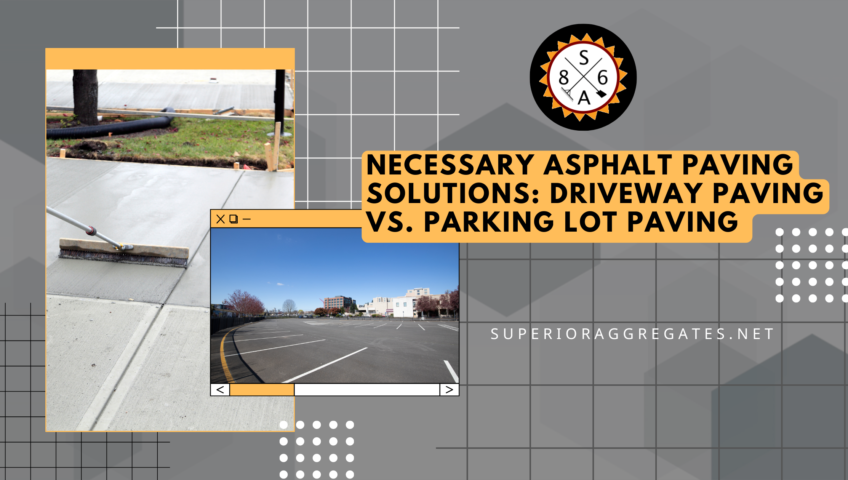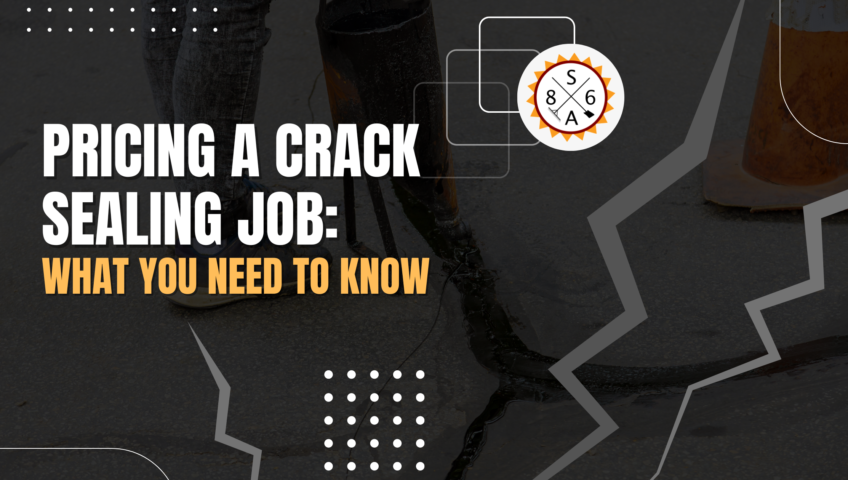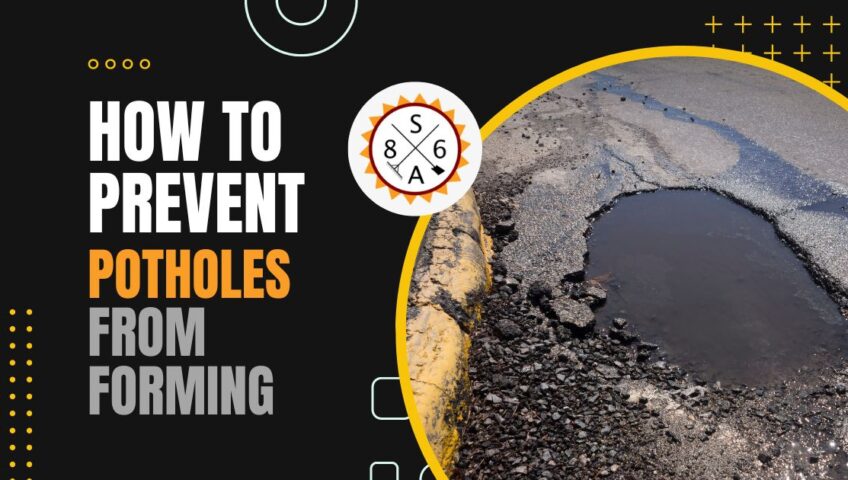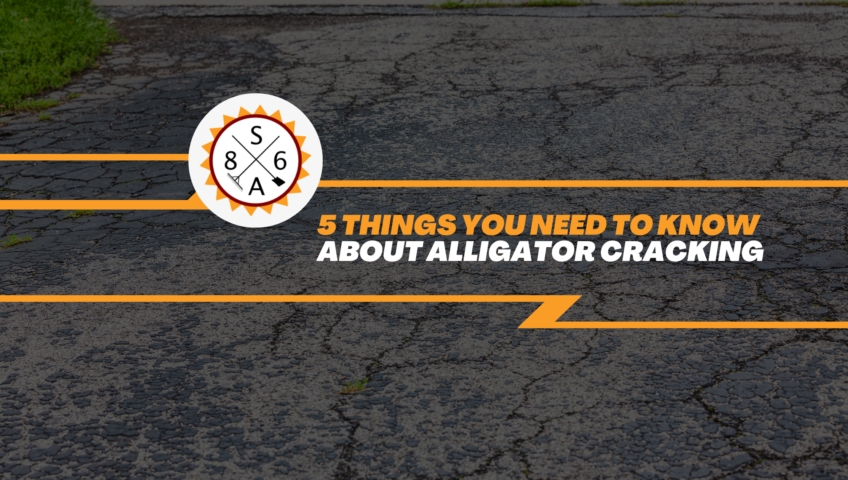
Necessary Asphalt Paving Solutions: Driveway Paving vs. Parking Lot Paving
Asphalt companies do many kinds of paving for their clients, as you likely know. Two of the most common types of paving that these companies do are driveway paving and parking lot paving. These two kinds of asphalt paving have similarities and differences. It is important that you know about driveway paving and parking lot paving in detail. Keep reading to find out more about driveway paving and parking lot paving.
Parking Lot Paving 101
As when discussing anything, it is important to start with the basics. Asphalt is one type of material that is used in parking lot paving. There are advantages and disadvantages to paving a parking lot using asphalt. One of the advantages of choosing asphalt is that whoever you hire to pave your parking lot can install the asphalt more quickly.
Additionally, one more advantage of choosing asphalt is that it is cheaper because paving the parking lot takes less time with asphalt than it does with concrete. A shorter paving project means a cheaper paving project. Asphalt companies can usually lay down the asphalt for the parking lot in only a few days. Of course, this depends on how large the parking lot is, but in general, asphalt parking lots take less time to complete than concrete parking lots.
An asphalt parking lot can be a good choice because it has a long lifespan, too. You do need to get some preventative maintenance done on asphalt, but if this maintenance is done, the asphalt will work and look like it is new for quite some time. If maintained properly, asphalt pavement may last twenty years or more. Even when the asphalt is replaced, the top layer is normally the only layer that gets repaved. The middle layer and base layer of the asphalt are considered to be permanent and do not need to be repaved, generally speaking.
Driveway Paving 101
Asphalt is also commonly used to pave driveways. Of course, driveway paving is different from parking lot paving in a number of ways. That being said, an asphalt driveway still has a number of advantages compared to a concrete driveway. One advantage that you should know about is that an asphalt driveway is more flexible than concrete because asphalt is more flexible compared to concrete overall.
Because of this flexibility, asphalt paving is less likely to crack. By contrast, concrete either cracks or remains firm. Asphalt has a level of flexibility before cracking that concrete does not. Additionally, as you might have guessed, an asphalt driveway is usually cheaper to install than a concrete driveway.
How Does Driveway Paving Compare to Parking Lot Paving?
Asphalt companies typically have plenty of experience doing both parking lot paving and driveway paving. One thing you should know is that parking lot paving often takes more time and is more expensive. This is because of the simple fact that parking lots are bigger than driveways, generally speaking. Additionally, driveway paving is done in residential areas, whereas parking lot paving is often done in commercial areas.
One similarity that asphalt driveway paving and asphalt parking lot paving share is that they are both generally cheaper than concrete paving. That is one reason you might prefer asphalt paving instead of concrete paving. In any case, you can find many trustworthy and competent asphalt companies in your area if you need any sort of paving done.
Asphalt companies do many kinds of paving for their clients, as you likely know. Two of the most common types of paving that these companies do are driveway paving and parking lot paving. These two kinds of asphalt paving have similarities and differences. It is important that you know about driveway paving and parking lot paving in detail. Keep reading to find out more about driveway paving and parking lot paving.
Parking Lot Paving 101
As when discussing anything, it is important to start with the basics. Asphalt is one type of material that is used in parking lot paving. There are advantages and disadvantages to paving a parking lot using asphalt. One of the advantages of choosing asphalt is that whoever you hire to pave your parking lot can install the asphalt more quickly.
Additionally, one more advantage of choosing asphalt is that it is cheaper because paving the parking lot takes less time with asphalt than it does with concrete. A shorter paving project means a cheaper paving project. Asphalt companies can usually lay down the asphalt for the parking lot in only a few days. Of course, this depends on how large the parking lot is, but in general, asphalt parking lots take less time to complete than concrete parking lots.
An asphalt parking lot can be a good choice because it has a long lifespan, too. You do need to get some preventative maintenance done on asphalt, but if this maintenance is done, the asphalt will work and look like it is new for quite some time. If maintained properly, asphalt pavement may last twenty years or more. Even when the asphalt is replaced, the top layer is normally the only layer that gets repaved. The middle layer and base layer of the asphalt are considered to be permanent and do not need to be repaved, generally speaking.
Driveway Paving 101
Asphalt is also commonly used to pave driveways. Of course, driveway paving is different from parking lot paving in a number of ways. That being said, an asphalt driveway still has a number of advantages compared to a concrete driveway. One advantage that you should know about is that an asphalt driveway is more flexible than concrete because asphalt is more flexible compared to concrete overall.
Because of this flexibility, asphalt paving is less likely to crack. By contrast, concrete either cracks or remains firm. Asphalt has a level of flexibility before cracking that concrete does not. Additionally, as you might have guessed, an asphalt driveway is usually cheaper to install than a concrete driveway.
How Does Driveway Paving Compare to Parking Lot Paving?
Asphalt companies typically have plenty of experience doing both parking lot paving and driveway paving. One thing you should know is that parking lot paving often takes more time and is more expensive. This is because of the simple fact that parking lots are bigger than driveways, generally speaking. Additionally, driveway paving is done in residential areas, whereas parking lot paving is often done in commercial areas.
One similarity that asphalt driveway paving and asphalt parking lot paving share is that they are both generally cheaper than concrete paving. That is one reason you might prefer asphalt paving instead of concrete paving. In any case, you can find many trustworthy and competent asphalt companies in your area if you need any sort of paving done.




